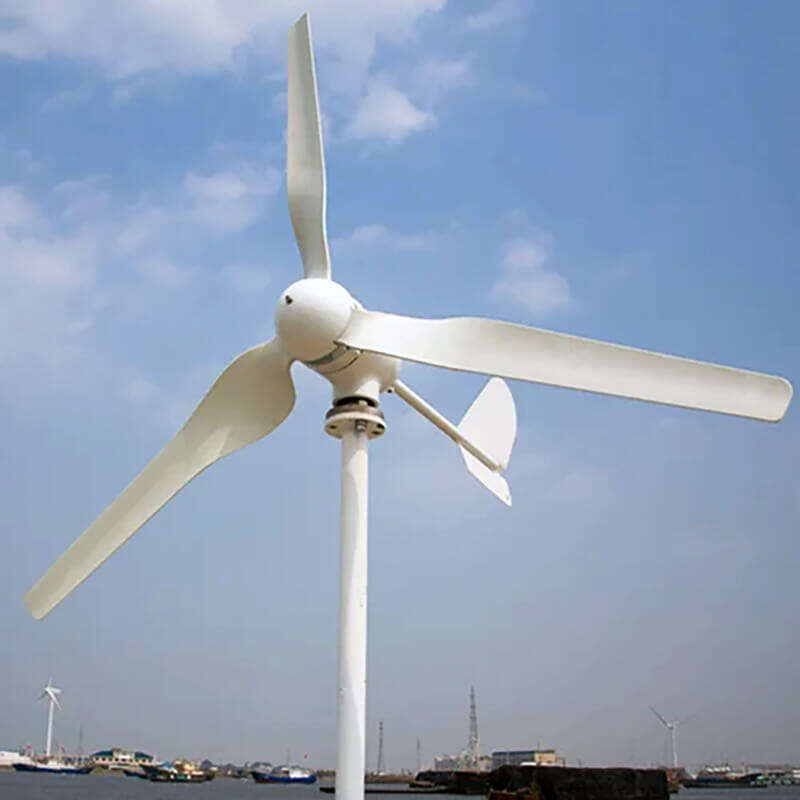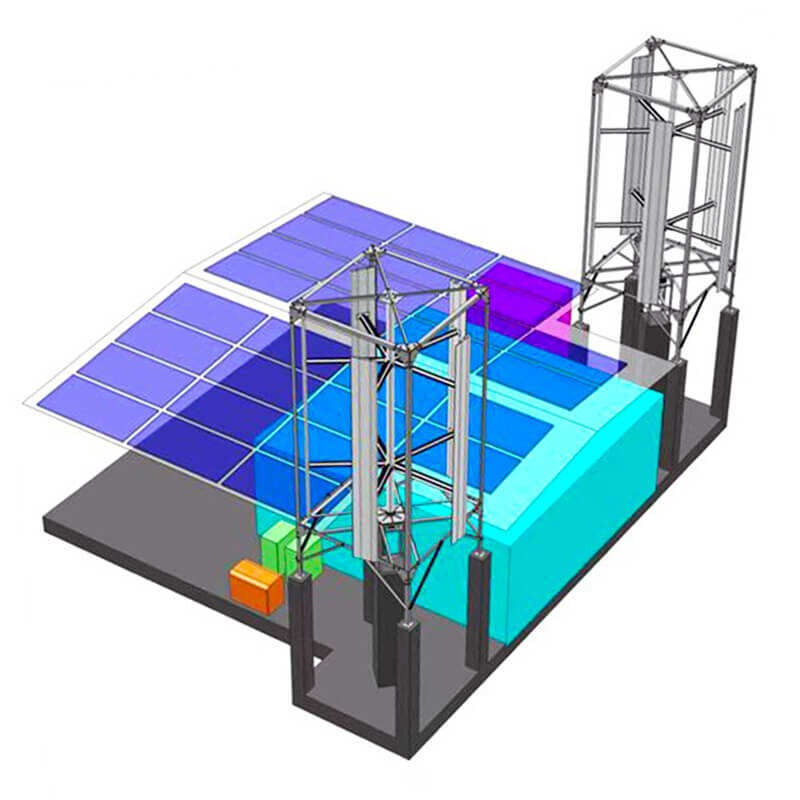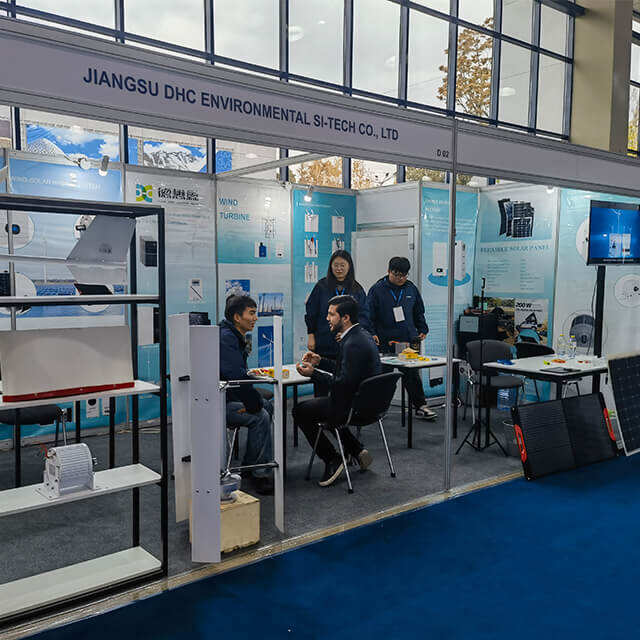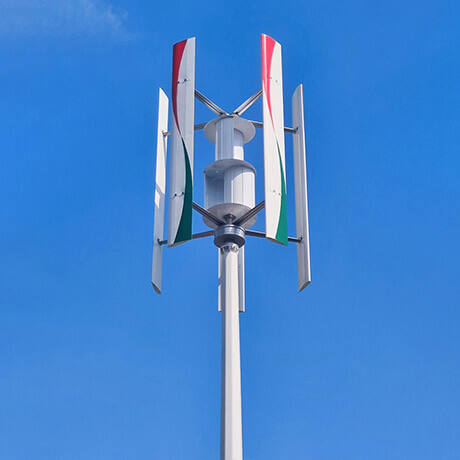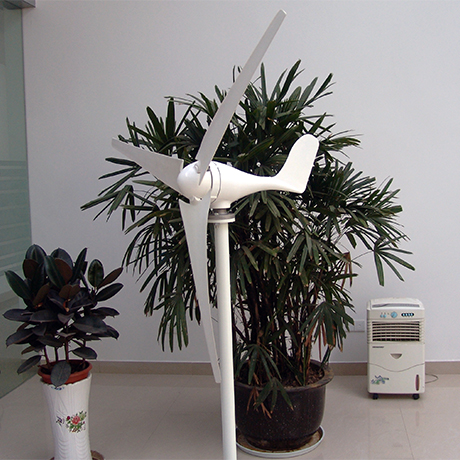Europe gives the highest priority when it comes to environmental well being. One significant reason for this is to reduce greenhouse gas emissions, which damage our planet. The use of renewable energy in Europe has been increasing to help with this commendable goal. One of the things they are doing is using wind turbines to produce electricity without burning fossil fuels. A typical wind turbine is a tall structure with long blades that spin around to change the kinetic energy in moving air into renewable electricity. But in none the less, there is a new type of wind turbine and it has really proven very popular just recently all over Europe. One such new type is the vertical wind turbine from Jiangsu DHC, which has many interesting usability features.
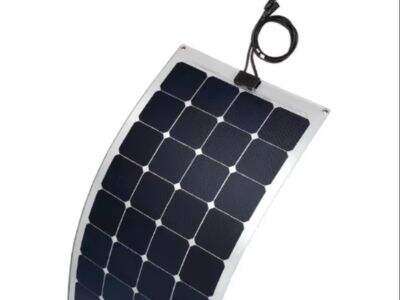
The Advantages of Vertical Wind Turbines
It is easy to see why vertical wind turbine are becoming so popular. One of the main reasons is that these turbines can generate electricity more efficiently than other conventional ones. The power on these vertical wind turbines is generated at the low to no wind speed. In contrast, conventional horizontal wind turbines require 12 m/s winds to crank out any power. This makes vertical wind turbines suitable to work under a greater number of characteristics in the velocity regime which give them reliability.
Vertical wind turbines also have the second advantage of requiring less space than horizontal (conventional) ones. This means that we can install more of these vertical wind turbines in an even smaller space because they are small. This allows us to generate even more energy, as we can power houses by using multiple turbines at a time. Also, the closer placement of these turbines enables significant savings in terms of construction and maintenance cost.
A Different Design
Different from traditional wind turbines, vertical means are held. The blades of the vertical 5000w wind turbine are twisted in form or helix shaped. This unique shape makes them able to catch wind from any angle. Horizontal wind turbines on the other hand are able to catch only from one horizontal direction since it will face in a single horizon plane. This makes vertical wind turbines exceptional in those places that the direction of the wind are usually changing.
Additionally, vertical wind turbines produce power even at lower windspeed. In fact, they can be put to work across a range of applications that would seem prohibitive with conventional wind turbines, which normally only really function in areas defined by abundant or consistent winds. Vertical wind turbines can capture the energy of potential contractors and found it effortless to operate in a broader terrain despite how intense or weak winds sometimes appear.
Saving Money and Energy
Vertical wind turbine are spreading ever so in Europe and one other reason is due to saving money, as well power. Vertical wind turbines in general are less costly to produce and install than horizontal-axis turbine. This makes them much more affordable for a lot of communities and organizations. Moreover, vertical wind turbines are less maintenance-intensive and last longer. This implies that they collect more energy with the passage of time and are therefore worth buying.
Along with all these advantages, the Vertical wind turbines speeds are also very high and there is a greater ability for wider band of operating by virtue. The reason being, many wind farms are positioned in regions of low wind speeds. Wind turbines that are more commonly used in wind farms find it difficult to produce electricity when the intensity of the winds is low. On the other hand, vertical wind turbines generate efficiency relatively constantly when there is a light breeze — this provides more advantages.
Helping Communities and Farms
Take, for example vertical wind turbines that are particularly suitable for small-scale energy generation. Now these turbines can be used in individual communities, farms or small businesses to generate their electricity. It will be especially relevant in underserved rural areas where the power grid is not always readily available. Local groups can take matters into their own hands and produce some or all of the electricity they consume, thereby cutting back on fossil fuel consumption while boosting self-reliance.
Small-scale wind power is being seen as a rising alternative energy resource in Europe as people start to consider other ways not rely on fossil fuels. The most optimal turbine design for this type of energy generation is the vertical wind turbines since they are smaller, easier to mount and more efficient at low winds comparatively. This makes them perfect for those who are interested in working with wind energy but wish to do it on a much smaller scale.


